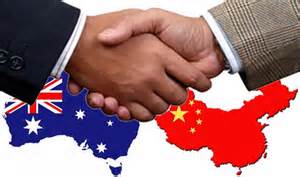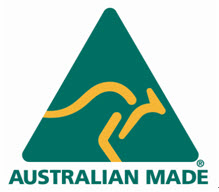China market entry: Australia-China Trade Agreement
China and Australia has been strengthening economic relationship for the last decade. Australia-China Trade Agreement, which was initiated by two partners in 2005, has officially pointed a need for bilateral negotiations. Although it was not completed due to certain disagreement on agricultural sector, it was a step toward closer integration.
Business co-operation between Australia and China is strengthened by numerous professional organizations
There are currently various business organizations, supported by both Chinese and Australian representatives, which encourage trade and cultural exchange between two partners, and give advice on particular regulations on FDI. These China-based Australian organizations include Australia China Business Council, China-Australia Chamber of Commerce, South Australia Government Commercial Representative Office, Victoria Trade and Investment Promotion, Western Australian Trade and Investment Promotion and others. Moreover, as a part of business co-operation, Australia China Trade and Investment Conference was held in Beijing in 2014 with the aim to provide potential Australian investors with relevant information regarding China’s markets, distribution channels, market entry and regulations.
China is the largest Australia’s trading partner
As it was mentioned before, trade volumes between China and Australia has been rapidly increasing since 2005. Nowadays, China is Australia’s main trading partner. Largest share of country’s import and export is related to China. As the data on July 2014 shows, of its total export of AUD 26 billion, over 8 billion goes to China. Similarly, approximately 14% of total Australian import comes from China.
This relationship is crucial for both countries. China imports large amount of iron ore, coal and liquefied natural gas each year while exporting mainly toys, clothes, computer and sport equipment. China has strong relationship with one of Australian mining companies called BHP Billiton, which is currently one of the largest suppliers of natural resources to China. This fact also indicates Australia’s strong dependence on Chinese demand for natural resources, which is explained by the increase of industrial activity. However, rapidly increasing service sector in China and falling industrial activity in the future can challenge strong ties between two countries.
Five largest Australian corporations have strong ties with China
Top 100 World Biggest Public Companies list, introduced by Forbes, comprises 5 Australian corporations. All of them are introduced or have close trade relationship with China. As it was mentioned before, BHP Billiton regularly supplies iron ore, coal and liquefied natural gas to China, while four major Australian banks, Commonwealth Bank, Westpac Banking Group, National Australia Bank and ANZ, have branches and representatives in China.
To sum up, it becomes apparent that relationship between China and Australia has been strengthening for the past decade since negotiations on Australia-China Trade Agreement started. The reason for it is an increasing volume of trade between two nations; both realize the need for integration and lowering trade barriers. This led to emergence of numerous business organizations, with representatives from both countries, which seek to encourage closer partnership between two trade partners by means of business advice and discussion. Consequently, it becomes obvious that trade volume between China and Australia are more likely keep increasing in the future bringing more Australian enterprises to Mainland China.
For more information:






